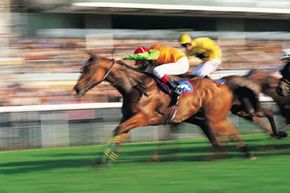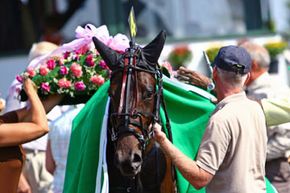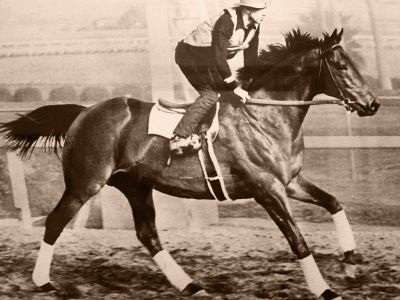There's something thrilling about owning a racehorse. It's cheaper than buying a professional sports team, and who doesn't like wearing big hats and sipping mint juleps at the Kentucky Derby? Still, if you think owning a racehorse is a good bet, think again. It's a gamble that probably won't pay off.
Advertisement
Horses can be money pits, sucking your wallet dry with fees, taxes and vet bills. Moreover, horse racing itself is going through tough economic times. The soft economy, coupled with increased competition for gambling dollars, is hurting the sport [source: Pedulla]. Still, if you want to saddle up, here are a few key questions to consider:
- How do I become a racehorse owner? Most racehorse owners belong to a partnership. Partnerships, or syndicates, sell shares in a horse, much like a Fortune 500 company. The partners then divide the prize money [source: Investment Advisor].
- What are the benefits of a partnership? Partnerships make economic sense because you don't have to be a king to enjoy the sport of kings. According to one study, 60 percent of racehorse owners had an annual household income of $75,000 or less [source: Brunker].
- How much should I spend to own a horse? You can invest a few thousand dollars, or significantly more depending on your goals. You might decide to own just a piece of a horse, or be the sole owner.
- Where should I race my horse? Not every horse has the talent to compete for racing's Triple Crown. As such, most horses race regionally, where competition is less daunting. Monetary considerations, the horse's ability and the type of race (such as harness or quarter) dictate the level of competition.
- How do I buy a racehorse? You can buy racehorses at public auctions, private sales or at a claiming race at a track.
Whatever you do remember that horseracing might be a sport, but it is also a business, and a risky business at that. The key is to understand the advantages and pitfalls. Do your research and check with experts. Check out the next page to learn more about the horseracing biz.
Advertisement




